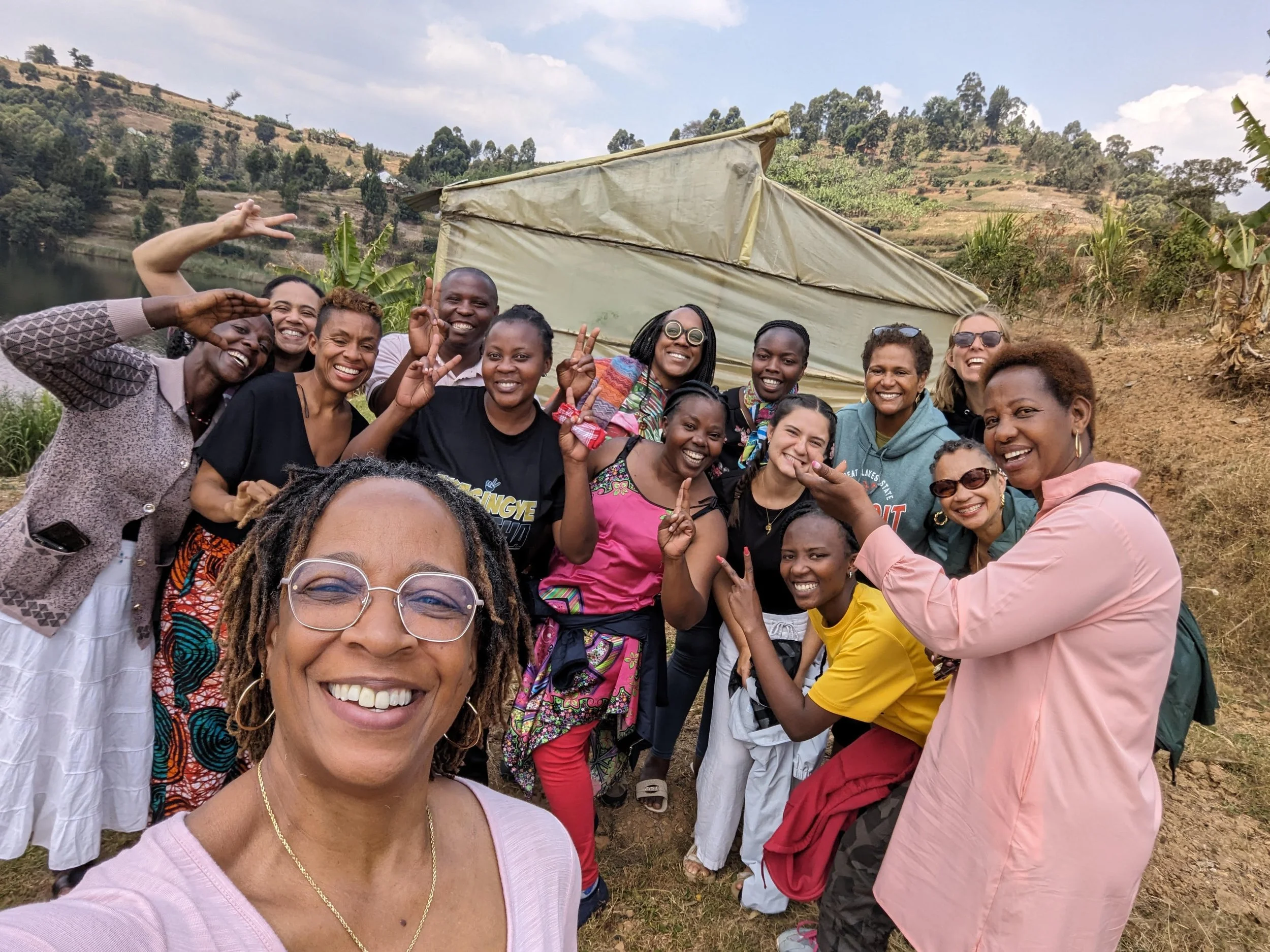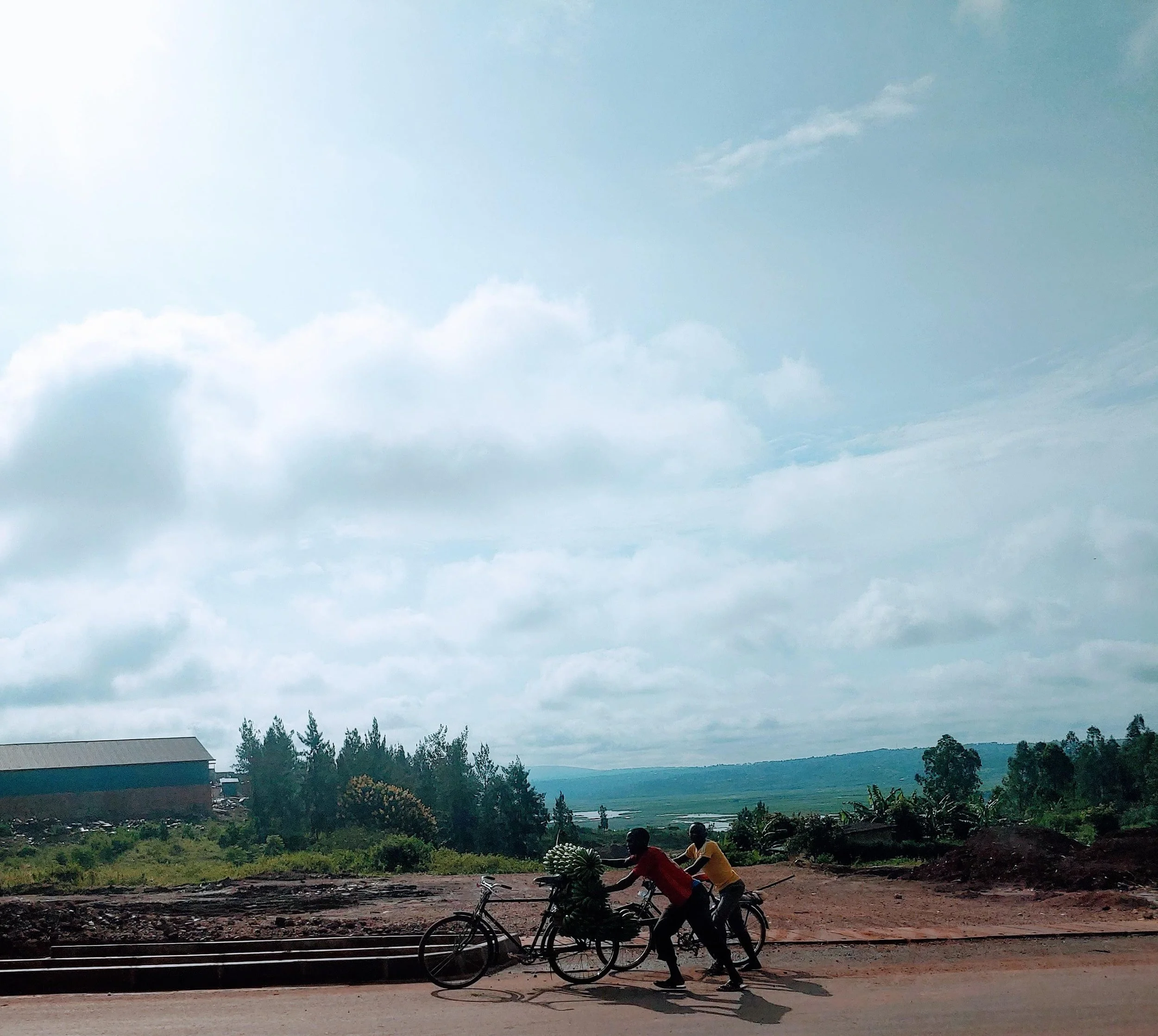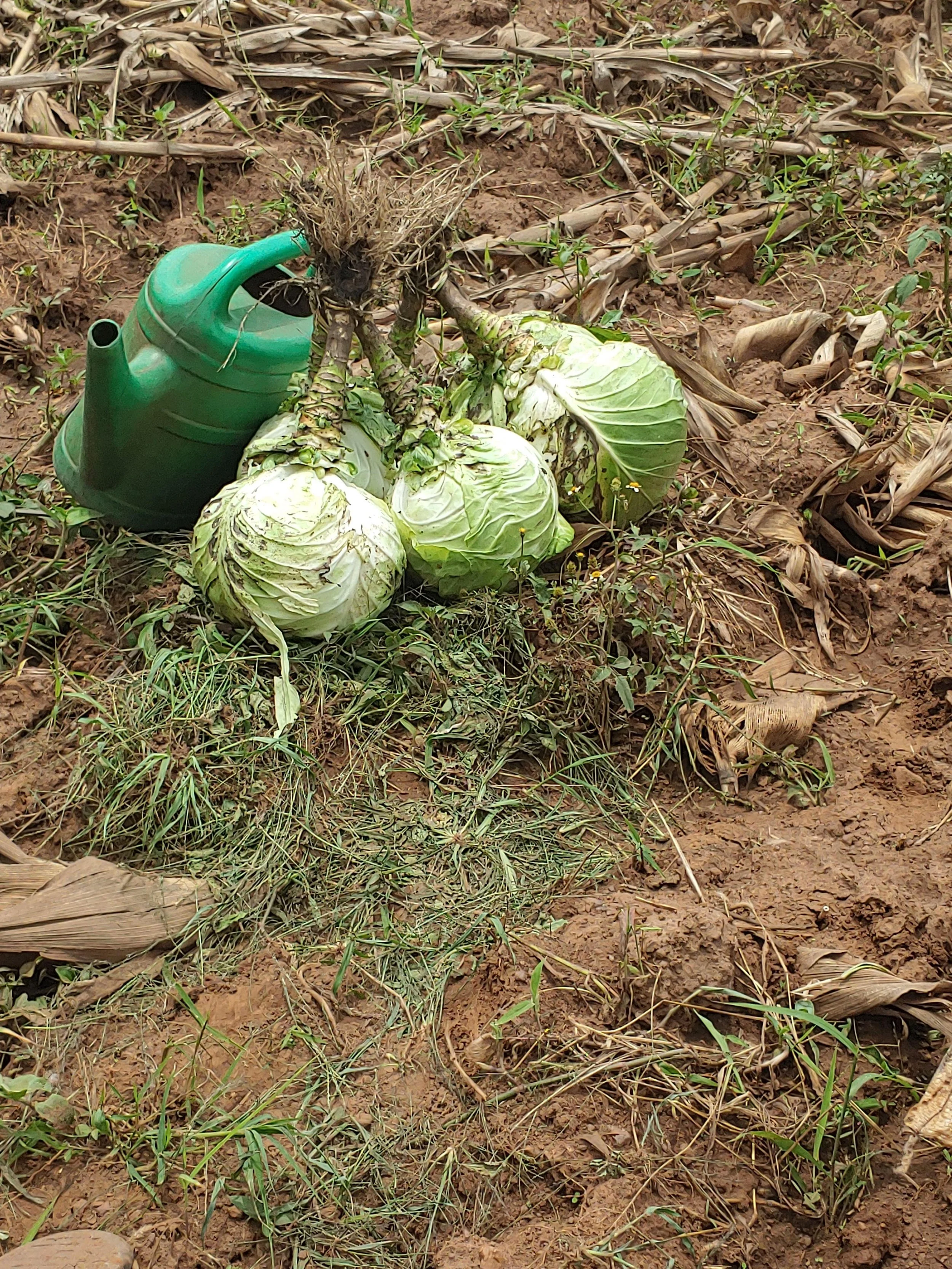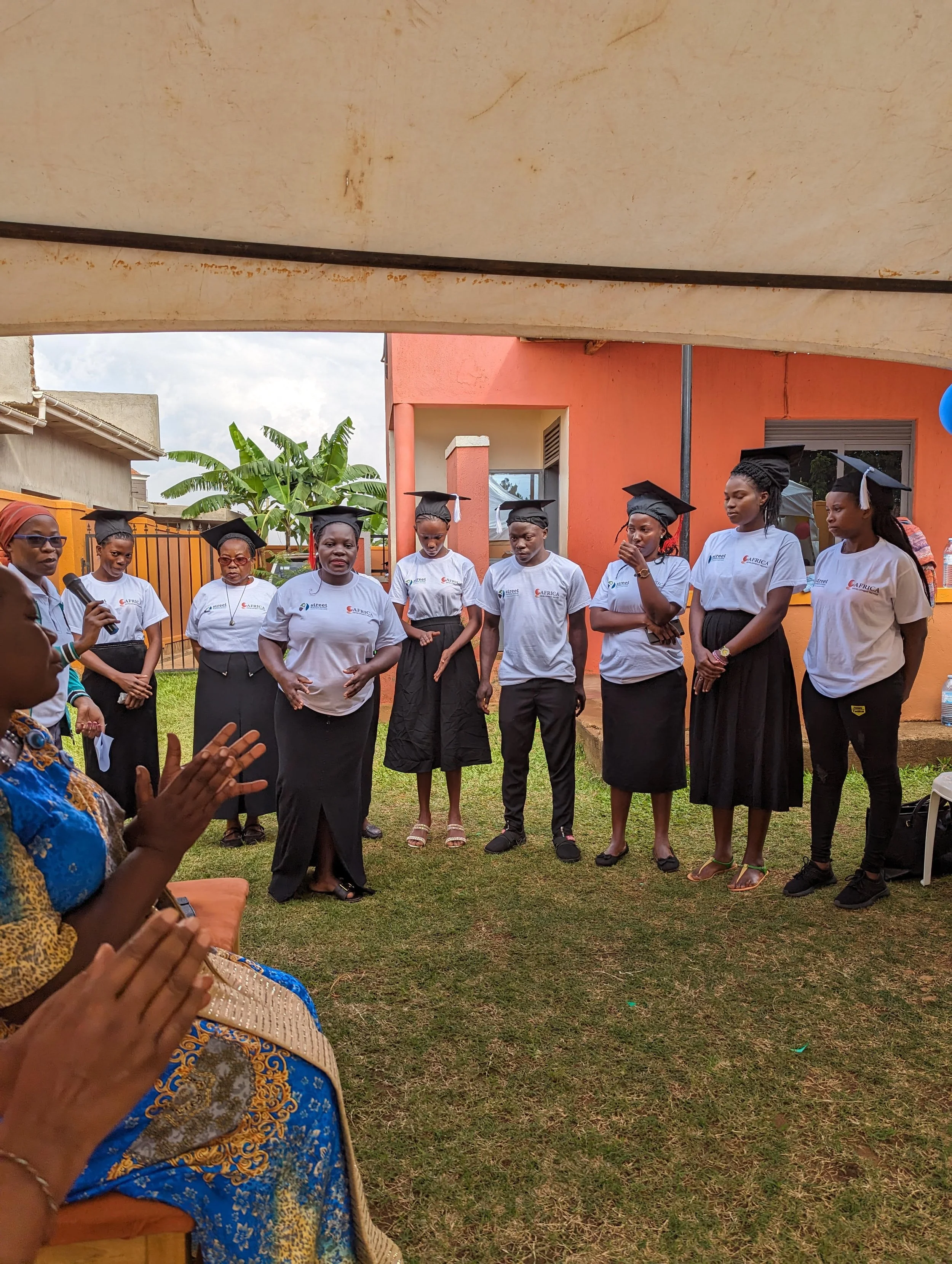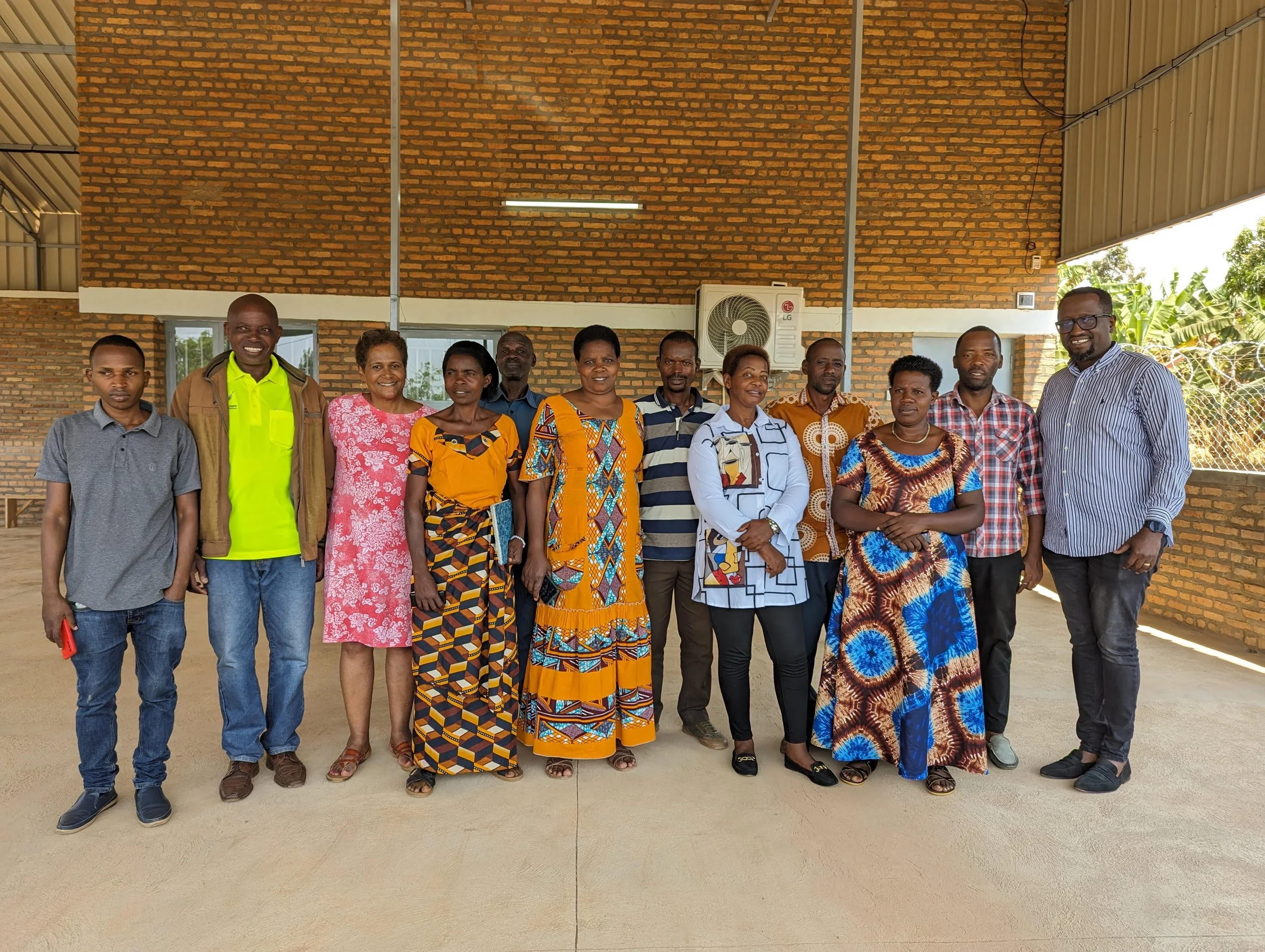Visiting the Programs and Continued Involvement— Why I Keep Coming Back
As I learned of the work ADP was doing in Rwanda and Uganda and the progress of the cooperatives, such as Epaphroditus’ mushroom production, I was intrigued and excited. The cooperative had gone from purchasing seeds and equipment, to not only producing full crops of mushrooms, but selling their fresh and dried mushrooms and powder, creating their own seeds, making some of their own equipment and with the help of ADP, constructing a building to house and protect the mushroom crops. Then I learned of the tours which ADP offered and I said to my husband “we need to go to with Monica”. In March 2020, we embarked on a trip with no preset expectations, except to experience the culture of Rwanda and Uganda and better understand the work of the co-ops and the impact that ADP and the cooperatives were having on the livelihood of the members. Over the years, my family had several opportunities to participate on mission trips to Mexico and Haiti. I think that is when I developed a passion to learn more about the cultures, challenges and perseverance of people in other countries. So, when I got the opportunity to visit Africa, I was delighted. It would be a different kind of mission, not hands-on, building anything, but a learning experience to understand the experiences and challenges of the farming communities, how we might contribute to the work of ADP and to simply gain knowledge about the people and countries of Rwanda and Uganda. What a history lesson it was! In addition to visiting the programs, among other things we went on a safari adventure, enjoyed a night of cultural dancing and food, and most memorable, visited sites of the genocide. Admittedly, I had to pause and ask why myself why I had such little knowledge of this tragedy. I also gained a different appreciation for the phrase “hard work” as I saw men, women and children pushing bikes full on produce, lumber, doors, water, etc. uphill each morning as they went to markets and jobs. In fact, in some communities I was told, when a woman marries, a bicycle is a part of her dowry.
While visiting the women-led co-ops and meeting some of the members, my husband and I were already discussing a return trip to programs, with the plan to expand our visit of the continent to several other countries as well. We were enthusiastic about the progress and impacts expressed by the members, and their humble gratitude. We witnessed first-hand how bringing water facilities to farmers in rural areas, not only benefited the farming crops, but provided clean water directly to the communities for drinking and cooking, without having to walk miles over the hilly terrain. And oh, the beautiful vegetables! We saw fields of vegetables such as cabbage, peppers, and mango and avocado trees. My only disappointment was that there was no way for me to bring any of it home!
Our desire to return and witness the continued progress of the programs never wavered. However, instead of only revisiting the cooperatives and training programs in Uganda and Rwanda, I had the opportunity to participate in a women’s leadership retreat in August 2023 (leaving my husband behind on this trip). Never had I thought of having such an opportunity! This trip was not just about revisiting previous sites, and newly added cooperatives, but a chance to engage, interact and share similarities, experiences and differences with women of another culture, while embracing sisterhood and new friendships. The four days on a scenic peninsula in Uganda with a group of women from the U.S., Rwanda and Uganda sharing, laughing, learning, hiking, and supporting one another, was incredible. Looking forward to the next retreat!
Unfortunately, but in a good way, we did not revisit a few of the familiar co-ops as they are in a self-sustaining phase, meaning no needed support from ADP. What an accomplishment! On the other hand, I did get to share in the graduation of students from the technical programs in Uganda—Sewing and Street Business schools. to help support their families. Not only is ADP engaged with the women farmers, but they are also providing opportunities for women from both the co-ops and the community to gain sewing, computer and business skills as other means to support their families. Some of the women of these programs are from a former farming co-op who desired to learn new skills and have their own individual businesses. For these women, I see that if they desire to do it, ADP will find a way to help them accomplish it.
Finally, as we drove out to the sites Rwanda, I was pleasantly surprised to recognize that the highway we were driving on had been the rode under construction on my first visit. I still saw workers pushing bicycles of produce and materials (up hill), but now on paved roads instead of gravely dirt. Another familiar site was the similarity of the new solar-powered storage facility in Uganda to a storage and sorting facility belong to one of the coops visited on the first trip. Progress was all around!
Prior to my first visit to the programs, I’d already discussed with Monica my desire to volunteer with the organization when I retired, as I knew I wanted to work with an organization which shared my passion to be of service others. Visiting the programs, sealed my interest in working with ADP. I retired in early 2022, and have been working with Africa Development Promise as a grant writer and assisting with the fundraising galas since October 2022.
ADP is not just impacting and changing lives of women in Africa, but the country visits are changing lives here in America. I can testify to that, as being a part of ADP and the in-country tours have been insightful, educational and extremely rewarding. I’ve had the opportunity to meet some strong, courageous women and gain insights of their lived experiences of the genocide in Rwanda, as well how others were directly affected in under the leadership of Idi Amin Dada in Uganda. This is the best history lesson.— By Mary Matthews, Grant Writer & Volunteer for Africa Development Promise
